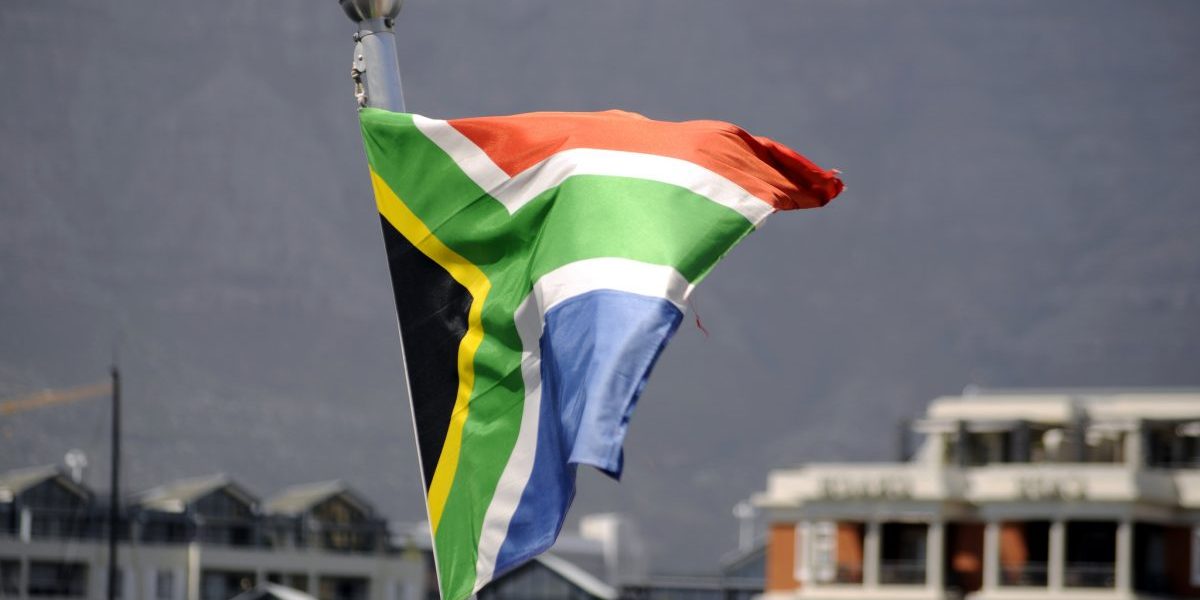South Africa has emerged as a significant investor over the last ten years in Africa. Although the value of investment of about $1 billion per annum is small in global terms, it is significant on a continent that attracted less than 2% of the world’s foreign direct investment (FDI) in 2001 and that lags significantly behind Asia and Latin America. However, such a proposal would necessitate an in-depth investigation of South African investment behaviour and its impact prior to its drafting.
Why have South African companies opted to move into Africa? Many companies, especially emerging multinationals, see the continent as a natural market for expansion. Geographical proximity is a key consideration for South African enterprises investing in neighbouring states. The South African economy is a critical anchor economy for these types of investment. On the one hand, it is a reliable and key supplier of appropriate products and consumer goods and the South African retail industry generally sources large volumes for their outlets from South Africa. On the other hand, the investment of Sasol in the Mozambican gas industry has been motivated by the search for a more environmentally friendly energy source to drive South African industry. The pipeline would not have been constructed had it not been for the highly sophisticated needs of the South African economy.
Many companies have invested in Africa because of strategic reasons and it has allowed them to diversify their income streams. Others have opted to move in because it provides an opportunity to generate income in hard currency. Others, especially in financial services, have followed their customers.
South Africa’s drive into Africa has been motivated by the sea change that has taken place on the continent over the last ten years. Many African countries have embarked on serious privatisation programmes, are liberalising their economies, introducing better corporate and democratic governance policies and reducing bureaucracy and red tape.
The impact on economic growth has been significant. The International Monetary Fund (IMF) expects Sub-Saharan Africa to grow by 5% in 2004. Several African countries notably Mozambique, Uganda and Botswana have enjoyed high growth rates for more than a decade, albeit from a fairly low base. Other countries that have recently emerged out of conflict or instability have made significant progress, such as Angola, Eritrea, Madagascar and Congo-Brazzaville. Some countries look enviously at the superlative growth of countries in the Gulf of Guinea. For example, Equatorial Guinea grew by 15.6% in 2003 and Chad by 10.9%. According to the IMF, the latter is projected to grow by 42.7% this year. However, high growth alone is not a guarantor of economic and political stability, as demonstrated by the recent coup attempt in Equatorial Guinea.
Moreover, positive economic growth does not remove the considerable hurdles companies face in Africa. In particular businesses face structural and bureaucratic constraints, such as huge currency fluctuations, poor infrastructure, lack of a skilled workforce, lack of finance, high business costs, high import tariffs, too small domestic markets combined with a lack of access to global markets, a poor regulatory framework and a lack of security of assets.
South African companies have been relatively successful in Africa despite these drawbacks. Many have developed and embarked on innovative coping and peer learning strategies. The prepaid billing systems of South Africa’s major cellular telephone providers – MTN and Vodacom – paved the way for the spectacular growth of the telecommunications industry throughout Africa. Other South African companies investing in Africa have not shied away from sinking their own boreholes, investing in diesel generators, building access roads and investing in sewerage farms to overcome infrastructural constraints?all of which have added value to the host economy.
South African firms have also been very adept at learning from each other. One company’s experience in Africa, namely Sasol, is indicative of this peer learning process. Not only did it model its own successful engagement framework with the Mozambican government on that of Mozal during the critical construction phase of the gas pipeline, it based its community liaison model on that of Shell. The valuable lesson is that South African companies do consider Africa as a serious investment destination and are putting the necessary effort and foresight into their planning when investigating investment options there. This is also borne out by their investment behaviour in Africa.
Significantly, South African companies have not been averse to moving into sectors that are normally eschewed by investors from Europe, Japan and the United States. South African investment covers all sectors in Africa, including construction, industry, mining, telecommunications, agriculture, tourism and financial services. This is contrary to normal investment behaviour on the continent that has targeted mainly extractive industries such as mining or oil.
This deviation from traditional investment behaviour in Africa demonstrates that South African companies are in for the long haul. Interestingly, they seem to be remarkably suited to the task. The Global Competitiveness Report 2003/4 of the World Economic Forum indicates in its Business Competitiveness Index (BCI) that South African companies are ranked first before Tunisia and Morocco on the continent as the most competitive African companies. The BCI measures the overall microeconomic business environment and the sophistication with which businesses compete against one another. Ironically, South Africa fares much better in the BCI than in the Global Competitiveness Index (GCI), which measures the national competitiveness of economies. Here South Africa is ranked third after Botswana and Tunisia.
However, South Africa’s business competitiveness has led to accusations of a ‘big brother’ attitude and bullying tactics. These sensitivities are directly related to South Africa’s relative gigantism to the region’s small economies. Part of the difficulty of managing these sensitivities is that this dominance is expected from developed world investors, not fellow African investors. South Africa is also not a traditional aid giver (which softens the blow to a certain extent for African governments and local businesses that receive investment from Europe, Japan or the US).
Therefore, a discussion about the regulation of South African investment behaviour in Africa should take due cognisance of the multiplicity of reasons why South African business is viewed with apprehension. Of course there is room to regulate criminal behaviour such as bribery, money laundering and graft. However, government should also be realistic about what can be achieved through legislation at the source instead of the point of entry.
A survey conducted by the South African Institute of International Affairs (SAIIA) of the experience of South African firms in Mozambique in November 2003 highlighted that most companies both local and foreign (and indeed all the smaller investors) are faced daily with petty corruption and red tape that hinders sustainable business activity. Clearly the case could be made that the requirement for regulation begins at home. It is the only way that a country such as Mozambique will attract the right type of businesses that take a long-term view and that support a sustainable growth path. More importantly, the abolition of many of the
obstructive bureaucratic measures and the curbing of bribery and corruption
will support the growth of the local business sector.
For many countries it remains a considerable challenge to combine realistic, sustainable growth with stability and poverty reduction. South African investment can assist to provide a foundation on which to build sound investment and economic policies and has already had a positive impact on job creation; revenue, export and GDP growth; and enhancing foreign business confidence. The decision by the South African government to relax capital controls on South African investment into Africa was in recognition of the important role that the South African private sector can play. This was also borne out by the government’s active support of public-private partnerships (PPPs), such as the Maputo Development Corridor, that provide an enabling environment for the sound conduct of business.
Thus, in principle, a code of conduct regulating the business activity of South African business on the continent can be a very positive initiative. However, one has to take care that this does not translate into a restrictive regulatory framework that scares South African business away. The African business environment is difficult enough as it is.








